Staying Informed: Keeping Up With Post-Hurricane News
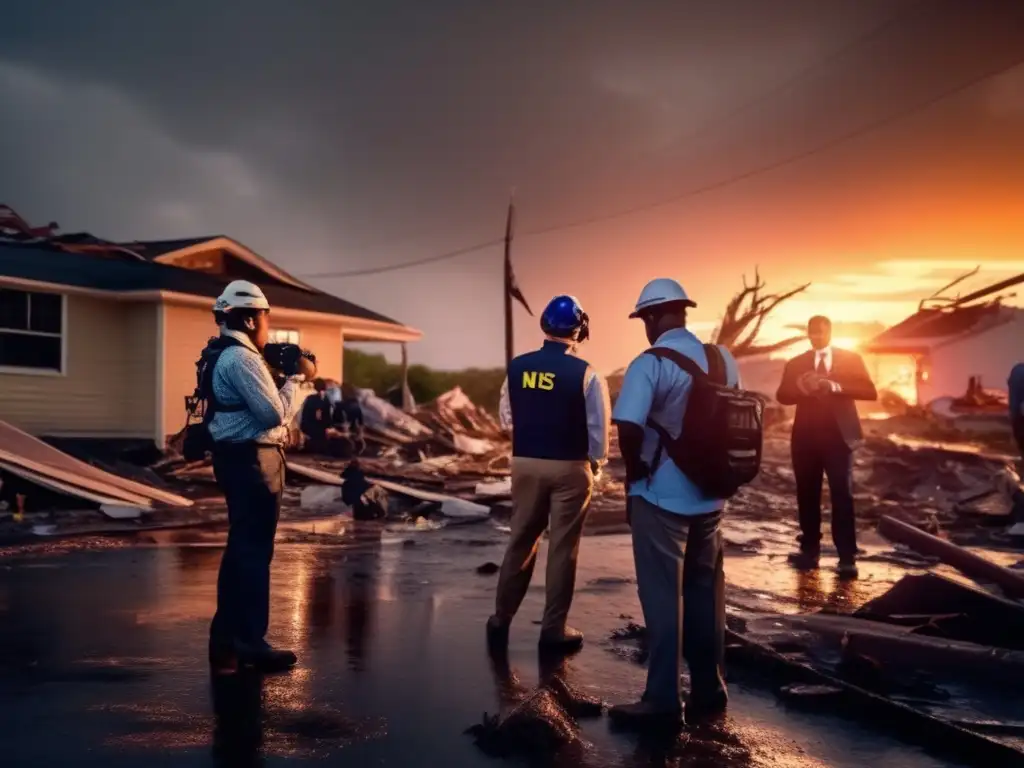
Staying Informed: Keeping Up with Post-Hurricane News
Introduction
Once a hurricane has hit, the immediate priority is to ensure everyone's safety and minimal damage. But when the storm is over, it's time to start thinking about recovery and restoration efforts. Access to accurate and up-to-date post-hurricane news can be incredibly valuable for making informed decisions regarding evacuation orders, power restoration, and other essential topics. This article will provide essential information on how to stay informed after a hurricane.
Government Alerts and Warning Systems

The Emergency Alert System (EAS)
The Emergency Alert System (EAS) is a national public warning system that provides critical emergency information via radio, television, and other media channels. The EAS is activated by the President, if needed, to provide information to the public during national emergencies. The Federal Emergency Management Agency (FEMA) oversees and manages the EAS.
The National Oceanic and Atmospheric Administration (NOAA)
The National Oceanic and Atmospheric Administration is another excellent source of post-hurricane news. NOAA is responsible for issuing watches, warnings, and forecasts for severe weather events, including tropical storms and hurricanes. When a hurricane is approaching, NOAA will issue regular updates and alerts through their website, social media platforms, and various media outlets.
The National Hurricane Center (NHC)
The National Hurricane Center is an organization that provides real-time information and updates about hurricanes, including storm tracks, wind speeds, and potential risks to affected areas. They are responsible for tracking and forecasting hurricanes, as well as providing hazard information and warnings. The NHC also issues hurricane watches and warnings, which are communicated to the public and other entities through different channels.
Local News and Media Outlets
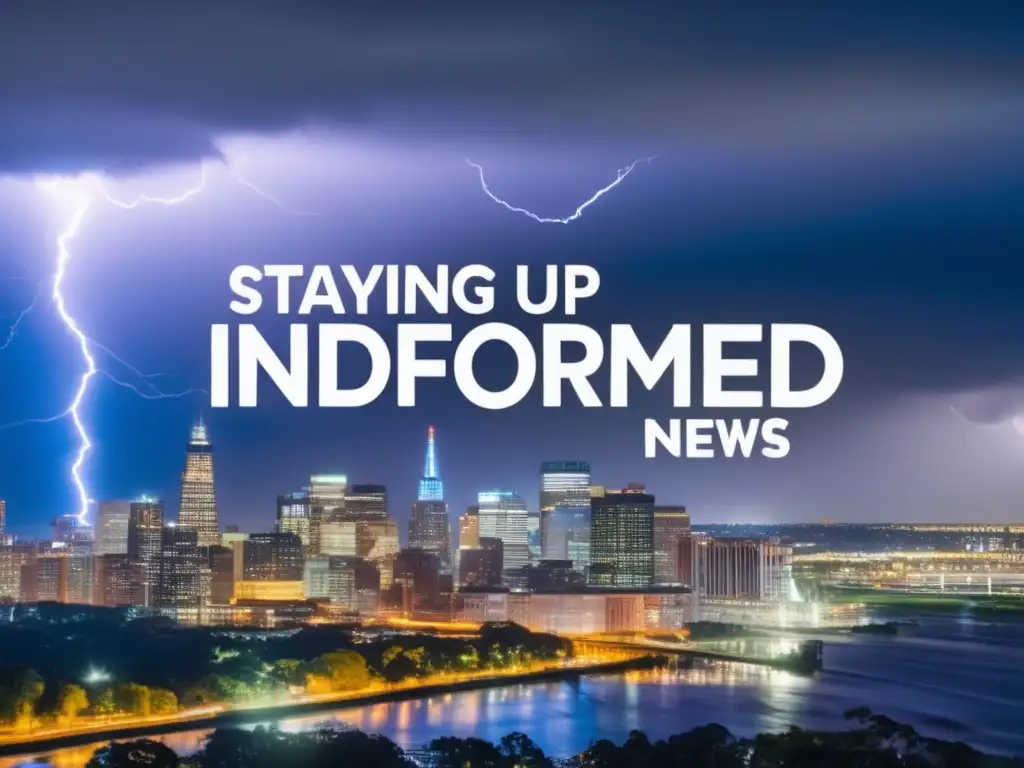
Radio and Television Stations
In addition to government alerts, local radio and television stations are excellent sources of post-hurricane news. Most media outlets will provide real-time updates on the effects of the storm, evacuation orders, power restoration efforts, and other vital information. It is a good idea to tune into local news broadcasts regularly, especially if you are in an affected area.
Newspapers and Online News Outlets
Local newspapers and online news outlets also offer valuable information on post-hurricane developments. Many newspapers will cover how the hurricane impacts different communities, including the destruction of buildings, flooding, and power outages. They will also cover recovery efforts and provide helpful tips for people who have lost their homes or possessions due to the storm.

Twitter is an excellent resource for monitoring post-hurricane news, particularly from official sources such as government agencies and local news outlets. Twitter can also be a helpful tool for reporting emergency situations, offering help, or seeking assistance.
Many local governments and emergency services organizations have Facebook pages where they post regular updates about post-hurricane recovery efforts, evacuation orders, and other important information. Facebook can also be a useful tool for sharing information with family, friends, and communities.
Mobile Apps
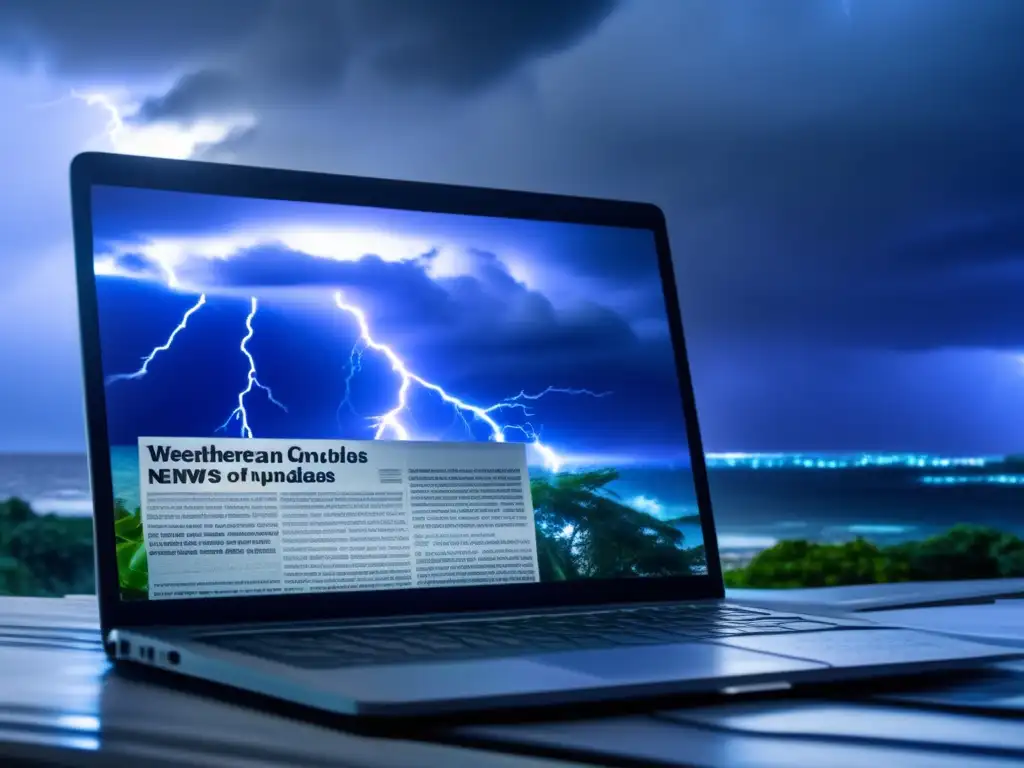
Red Cross Emergency App
The American Red Cross offers an emergency app that provides real-time information on hurricanes and other disasters. The app features safety tips, shelter locations, and important alerts from emergency officials. Additionally, the app includes a "safe and well" section that allows people to let their families know they are safe after the storm.
NOAA Radar Pro: Weather Alerts
The NOAA Radar Pro app provides detailed information on hurricane tracks, wind speeds, and other weather-related data. It also features push notifications when there are watches and warnings in place for specific locations. This app is particularly useful for people who live in areas prone to hurricanes and other severe weather events.
Frequently Asked Questions
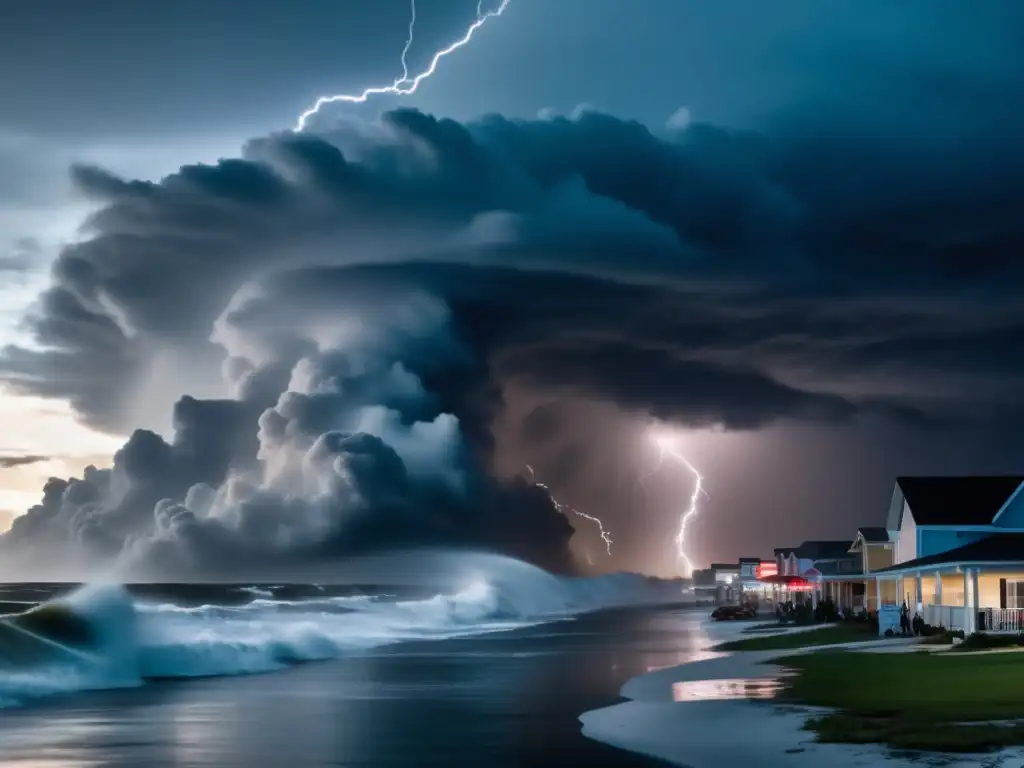
-
How can I stay informed during a hurricane?
During a hurricane, it is essential to have access to accurate and up-to-date information about the storm. Government alerts and warning systems, local news and media outlets, social media, and mobile apps are all excellent sources of post-hurricane news.
-
What kind of information will I get from government alerts and warning systems?
Government alerts and warning systems provide critical information on evacuation orders, power restoration, and other essential topics. Examples include the Emergency Alert System (EAS), the National Oceanic and Atmospheric Administration (NOAA), and the National Hurricane Center (NHC).
-
Can I rely on social media for post-hurricane news?
Social media can be a useful tool for monitoring post-hurricane news, particularly from official sources such as government agencies and local news outlets. However, it is important to exercise caution and verify any information before sharing it with others.
-
What apps can I use to stay informed during a hurricane?
Apps such as the Red Cross Emergency App and NOAA Radar Pro: Weather Alerts are excellent resources for staying informed during a hurricane. These apps provide real-time information on weather patterns, safety tips, and other important alerts from emergency officials.
-
Why is it essential to stay informed after a hurricane has passed?
Staying informed after a hurricane is crucial for making informed decisions regarding evacuation orders, power restoration, and other essential topics. Additionally, staying up-to-date can help you avoid scams and fraudulent activities that often emerge after natural disasters.
Conclusion
Staying informed after a hurricane has passed is critical for making informed decisions about recovery and restoration efforts. Government alerts and warning systems, local news and media outlets, social media, and mobile apps are all excellent sources of post-hurricane news. Whether you live in an area prone to hurricanes or not, it is always a good idea to stay informed about natural disasters and how they can affect you and your community.
As always, we encourage our readers to leave comments, share their experiences, and positively engage with Hurricane Insider. We appreciate your time and attention and look forward to providing you with more useful information in the future.
Additional Resources

- Ready.gov - Hurricanes
- National Hurricane Center
- Red Cross Emergency App
- Weather.gov Mobile Phone Apps
 Disaster Unemployment Assistance After A Hurricane
Disaster Unemployment Assistance After A Hurricane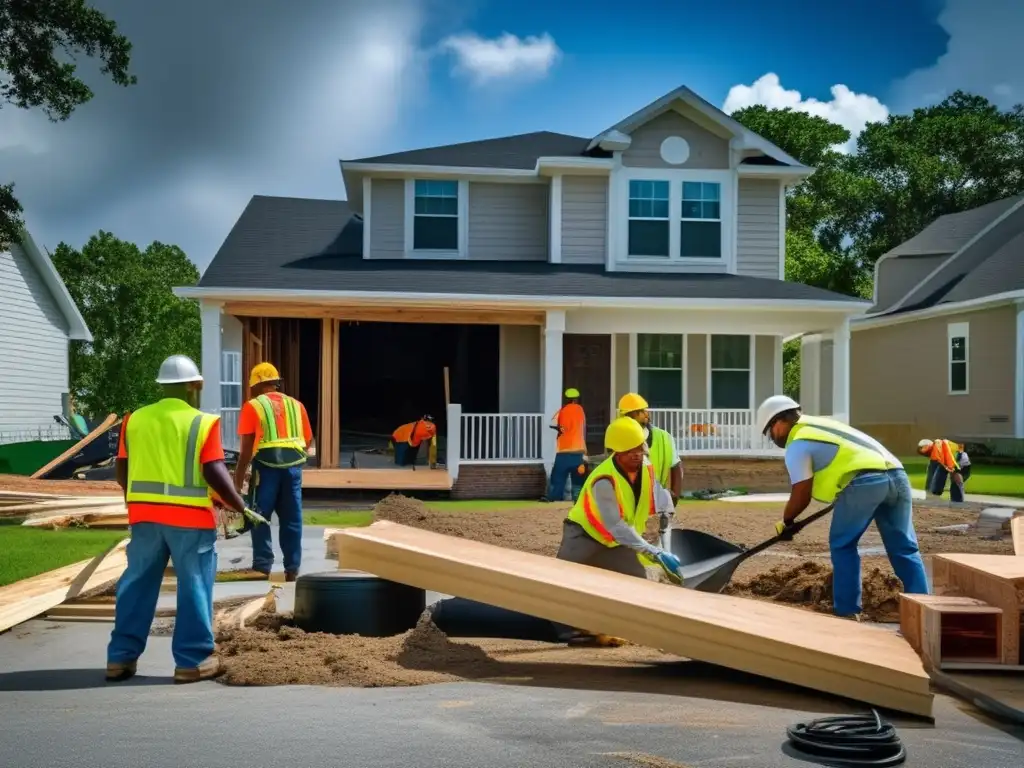 Hiring Contractors: What To Look For Post-Hurricane
Hiring Contractors: What To Look For Post-Hurricane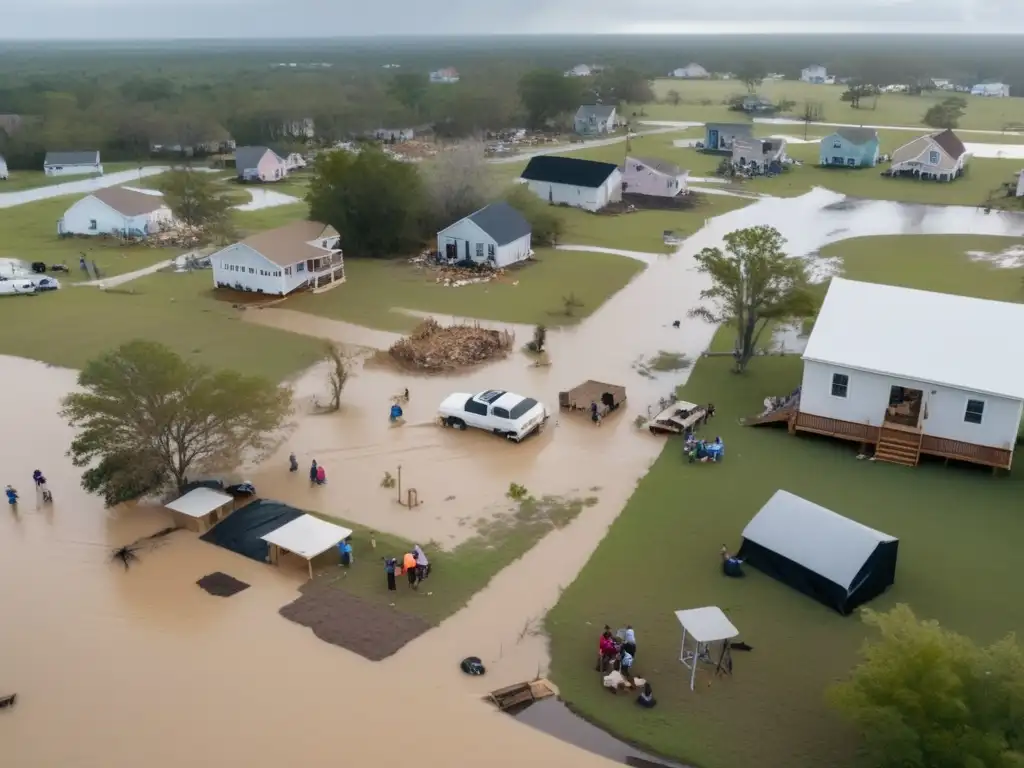 Community Events To Bring Hope After A Hurricane
Community Events To Bring Hope After A HurricaneIf you want to discover more articles similar to Staying Informed: Keeping Up With Post-Hurricane News, you can visit the Hurricane recovery: category.
Leave a Reply

Articulos relacionados: